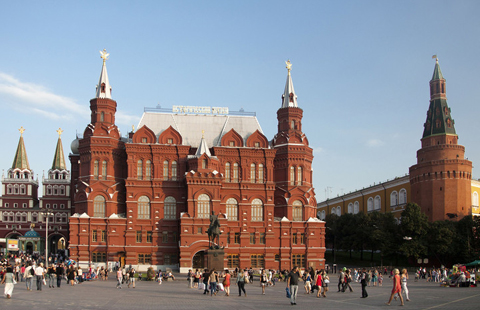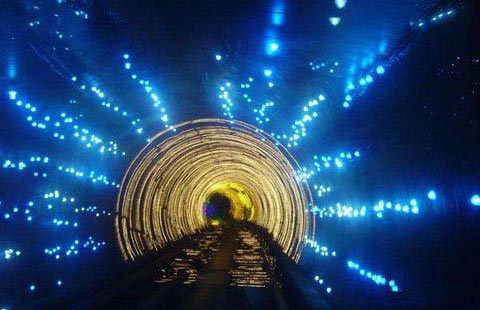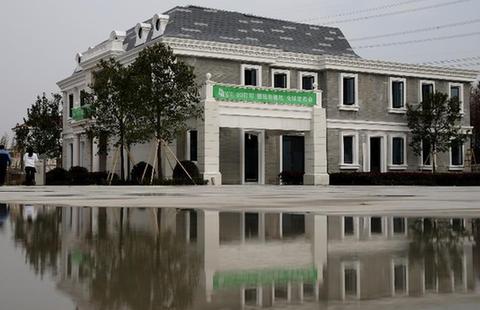China group will build power plant in Mexico
Updated: 2015-01-19 04:00
By Yang Yao in Beijing(China Daily Latin America)
|
||||||||
Two months after Mexico canceled a Chinese-led bid to build a high-speed rail system, another consortium of Chinese companies has secured a $386 million contract to build a 240 Megawatt (MW) hydroelectric power station in southern Mexico.
On Jan 10, Mexican state power company (Mexican utility Comision Federal de Electricidad, CFE) awarded the contract to the business group comprised of a unit of China's Sinohydro Corp, as reported by Reuters.
In a statement late on Jan 16, the CFE said the group, which also includes Sinohydro Costa Rica, Omega Construcciones, Desarrollos y Construcciones Urbanas and CAABSA Infraestructura, had won the contract with a bid of almost $20 million below the CFE's budget ceiling for the $405.6 million project.
The new plant, known as Chicoasen II, is expected to supply electricity to more than 500,000 homes in the southern state of Chiapas. The project is expected to take three and a half years to build.
Latin America is an emerging hydropower plant construction market for China. According to media reports, China has built or participated in building water plants in Costa Rica, Ecuador, Honduras and Venezuela. Chiapas is an important hub connecting Mexico and Central America. This rich land, with less than 4 percent of Mexico's area, supplied 54 percent of the nation's hydroelectricity, 13 percent of natural gas and 13 percent of corn production.
Chicoasen II is a plan under Grijalva River hydro development. Chicoasen II would be built in the municipality of Chicoasen in Chiapas State near the 2,430-MW Chicoasen (Manuel Moreno Torres) hydroelectric plant built in 1980. The Grijalva River hydroelectric complex also includes 420-MW Penitas (Angel Albino Corzo), 900-MW La Angostura (Belisario Dominguez), and 1,080-MW Malpaso (Nezahualcoyotl) projects.
The dam on the Grijalva River was designed in the early 1970s and constructed between 1974 and 1980 under topographical and geological constraints.
Sinohydro is the firm that built the Three Gorges Dam, the world's largest hydropower facility.
During the CELAC-China Forum that was held in Beijing last week, Chinese President Xi Jinping said China will invest around $250 billion in Latin America in the next decade, and build strategic partnerships in areas of infrastructure construction, including energy, port, roads, and hydropower plants.
Mexico has rich hydropower resources, as the country has high seasonal rainfall in the north
with almost all falling between May and October, and a very short dry season, or none at all, in the south.
Hydropower represents 18 percent of total electricity-generation. According to reports, there are a total 540 dams in Mexico.
Hydropower development was debated in the country because opponents believe that the building of dams would cause environmental and social problems, including immigration and water course change.
In December 2012, the federal power committee planned to build four new hydropower stations which would cost $3.8 billion. The one in Chiapas is one of the four. Three other stations are going to be built in Nayarit, Oaxaca and Guerrero.
In the 2014-2018 Infrastructure Development Plan issued by the Mexican government on Apr 29, 2014, the hydropower development is a national plan, aiming to ensure drinking, irrigation, and prevent floods. Mexico will develop 28 gigawatt newly generated electricity by 2015.
The deal comes just days ahead of re-bidding for a high-speed rail project in the country, in which the Chinese rail giant will re-bid for a contract to build Mexico and Latin America's first high-speed railway. Its previous attempt was derailed by a Mexican conflict of interest scandal.
State-owned Assets Supervision and Administration Commission (SASAC), a Chinese government agency that oversees state-owned assets, announced in Shanghai on Jan 14 that China Railway Construction Corp (CRCC) would tender a bid to build Mexico and Latin America's first high-speed rail line, which will run between Mexico City and Queretaro, a manufacturing hub northwest of the capital.
CRCC will offer to build a complete package, including the 210-kilometer rail track, railway stations, fast trains and other equipment. Once built, the rail line will carry about 25,000 passengers a day between the two cities at speeds of up to 300 km/h, and reduce the commute between them to 58 minutes, down from two and a half hours today.
CRCC had previously led a consortium of Chinese and Mexican companies bidding on the same project. The consortium was set to win the contract, but the deal was interrupted on Nov 6 last year, when a conflict of interest controversy erupted.
yangyao@chinadaily.com.cn

 Bank, Rockets help out school
Bank, Rockets help out school
 Top 10 trading partners of the Chinese mainland in 2014
Top 10 trading partners of the Chinese mainland in 2014
 Yuan Dynasty fresco tomb excavated in Shaanxi
Yuan Dynasty fresco tomb excavated in Shaanxi
 Most artistic metro stations in China
Most artistic metro stations in China
 3D printed houses seen in China's Suzhou
3D printed houses seen in China's Suzhou
 Automatic bartender machine invented
Automatic bartender machine invented
 Trending: Tuckered out panda goes viral
Trending: Tuckered out panda goes viral
 Govt takes measures after 93 wild birds die
Govt takes measures after 93 wild birds die
Most Viewed
Editor's Picks

|

|

|

|

|

|
Today's Top News
US to help China find fugitives
Chinese stocks dive most in 7 years
Protest breaks out at HP subsidiary
Marco Polo proves a hit in US
Rep Meng warns of immigrant frauds
Secret Service: Shots fired outside Bidens' home
China's civil servants to see 60% increase in salary
Hundreds of Chinese trapped by fighting in eastern Myanmar
US Weekly

|

|







